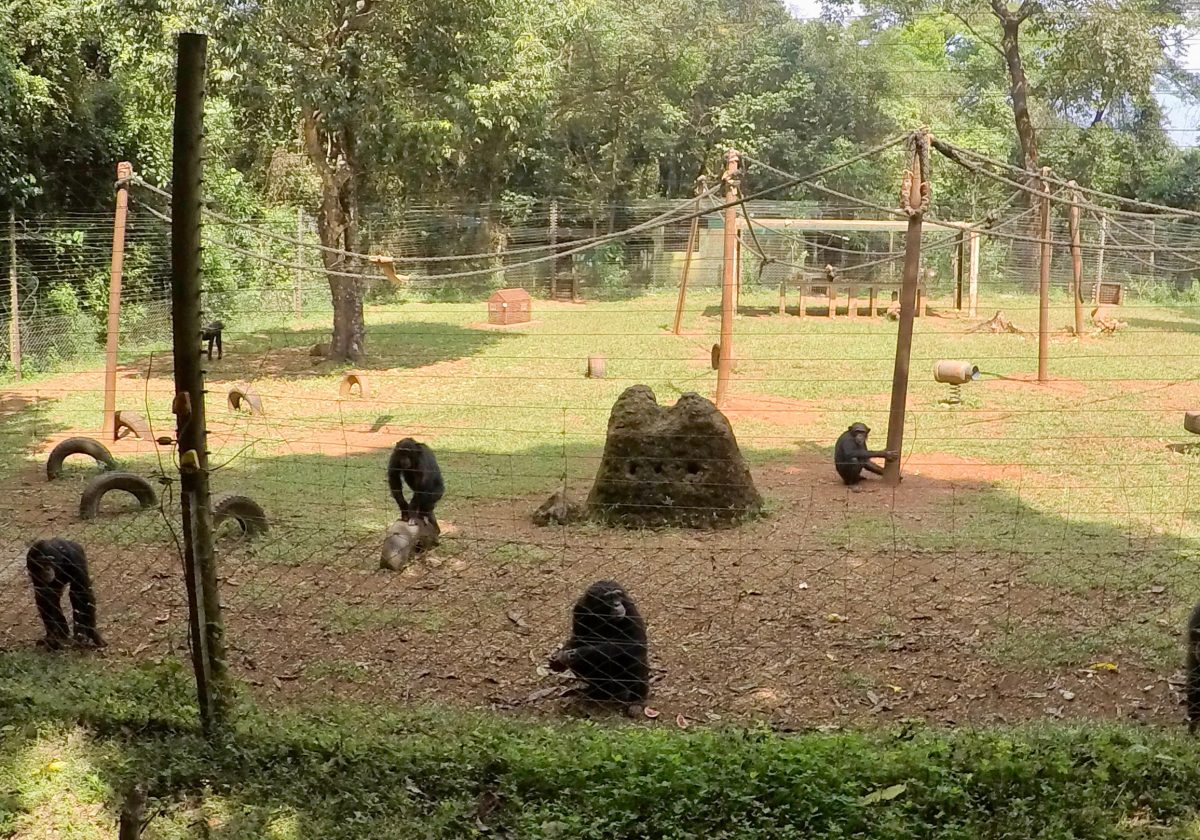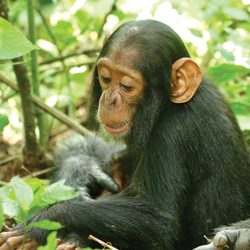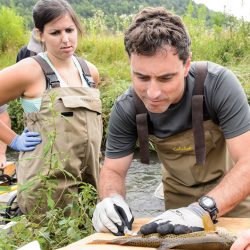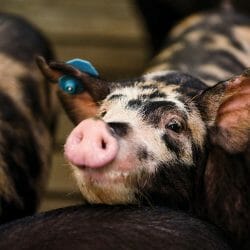
Thanks to a UW team, veterinarians in Tacugama have new, targeted therapies to treat sick chimps. Tony Goldberg
In 2005, chimpanzees at a sanctuary in Freetown, Sierra Leone, started suffering a sudden illness that made them stumble, vomit, and stop eating — a fatal disease with no cure. To date, 56 chimpanzees have died of the mysterious ailment, which has been dubbed epizootic neurologic and gastroenteric syndrome, or ENGS.
After years of struggling to pinpoint the cause of ENGS, veterinarians at the Tacugama Chimpanzee Sanctuary reached out to Tony Goldberg, a professor of epidemiology in the UW–Madison School of Veterinary Medicine. Goldberg, who studies emerging diseases and uncovers novel pathogens using genetic sequencing, led an international team that linked an overlooked bacterial group known as Sarcina to ENGS. Thanks to a breakthrough by UW–Madison graduate student Leah Owens PhDx’21, DVMx’25, researchers discovered that most chimps with ENGS had Sarcina in their gut, and some harbored the bacteria in their livers, spleens, and brains. The bacteria did not appear in any healthy chimpanzees.
The genome revealed that this bacterium, despite resembling other Sarcina microbes, was a new species. The researchers named it Sarcina troglodytae after the scientific name for chimpanzees, Pan troglodytes.
The study suggests that Sarcina, which have only rarely been linked to disease in humans, may be more common — and capable of more serious infections in people and animals — than previously thought. But there is currently little concern over animal-to-human transmission, and for now the disease remains rare in humans.
And the good news, says Owens, is that “because of our team’s work, Tacugama veterinarians have new, targeted therapies to treat sick chimps (like probiotics, special diet, and specific antibiotics), some of which they are already using and which appear to be promising.”
Published in the Summer 2021 issue



Comments
No comments posted yet.